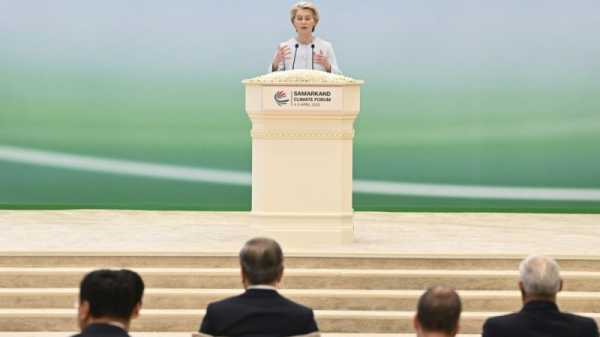
The process of justice for murdered Maltese journalist Daphne Caruana Galizia has been “excruciatingly slow and half-hearted”, Sophie In’t Veld said on Wednesday following a three-day rule of law mission by a European Parliament delegation to Malta.
Against the backdrop of the prospect of the allocation of EU funds being conditional on national governments respecting the rule of law. The European Parliament has stepped up its monitoring work of countries facing issues such as media and judicial freedom and corruption.
Speaking at a press conference in Valletta following a programme of meetings with Malta’s political leaders, Europol, the EU’s police agency, and civil society activists by six MEPs from the Parliament’s Civil Liberties committee, delegation leader In’t Veld said that the task was to “end the culture of impunity” that had been identified in the public inquiry into the killing of Daphne Caruana Galizia.
“Ending that culture is crucial and requires wholehearted and cross-party support,” she said, commenting that the MEPs “had a feeling that a sense of urgency has been lost”.
An investigative journalist, Daphne Caruana Galizia, was killed by a car bomb in 2017. Five years later, no one has been convicted for her murder.
In’t Veld said she was “shocked” that 4.5 years on justice has still not been served. “Without justice, trust and reconciliation cannot take place,” she said.
“The sense that justice being delayed is justice being denied,” added Vladimír BilČik, a Slovakian centre-right MEP.
The Dutch MEP pointed to a similar murder case in Slovakia, where journalist Ján Kuciak was killed in 2018, telling reporters that Kuciak’s murder case has since been closed, with the mastermind convicted.
In’t Veld added that she was “particularly dismayed” that a number of SLAPP cases, lawsuits initiated against Caruana Galizia in an attempt to silence her by burdening her with the cost of a legal defence, and which had been inherited by her family remain in place. “It is really quite disgusting to see that those cases have not been dropped,” said the Dutch EU lawmaker.
These cases include ones filed by ex-prime minister Joseph Muscat.
The MEPs also expressed concern about the high levels of debt held by the Labour and Nationalist parties, which dominate Maltese politics, and at the state of Malta’s “essentially part-time Parliament, which has implications for its ability to pass reforms on one hand and implement EU legislation on the other”.
However, she pointed to “a change in mentality”, adding that “it’s not all doom and gloom, we do see progress,” welcoming additional capacity for the judiciary and reform of the attorney general’s office.
The delegation has again recommended that Malta’s ‘golden passports’ scheme, which allows non Europeans to effectively buy Maltese and therefore EU citizenship via purchasing property or investing in the country, must be stopped. In April, the European Commission gave the Maltese government a formal warning to end the practice or face legal action in the European Court of Justice.
In’t Veld told reporters that the government in Valletta insists that the scheme will be retained “because the government believes it is useful”.
MEPs are now monitoring the rule of law questions in Slovenia and Bulgaria, as well as Malta, Hungary and Poland. However, the Parliament delegations cannot make binding recommendations to individual countries.
“We are not a tribunal,” said In’t Veld, adding that the delegations can “keep the spotlight on the need for reforms.”
[Edited by Alice Taylor]
Source: euractiv.com



